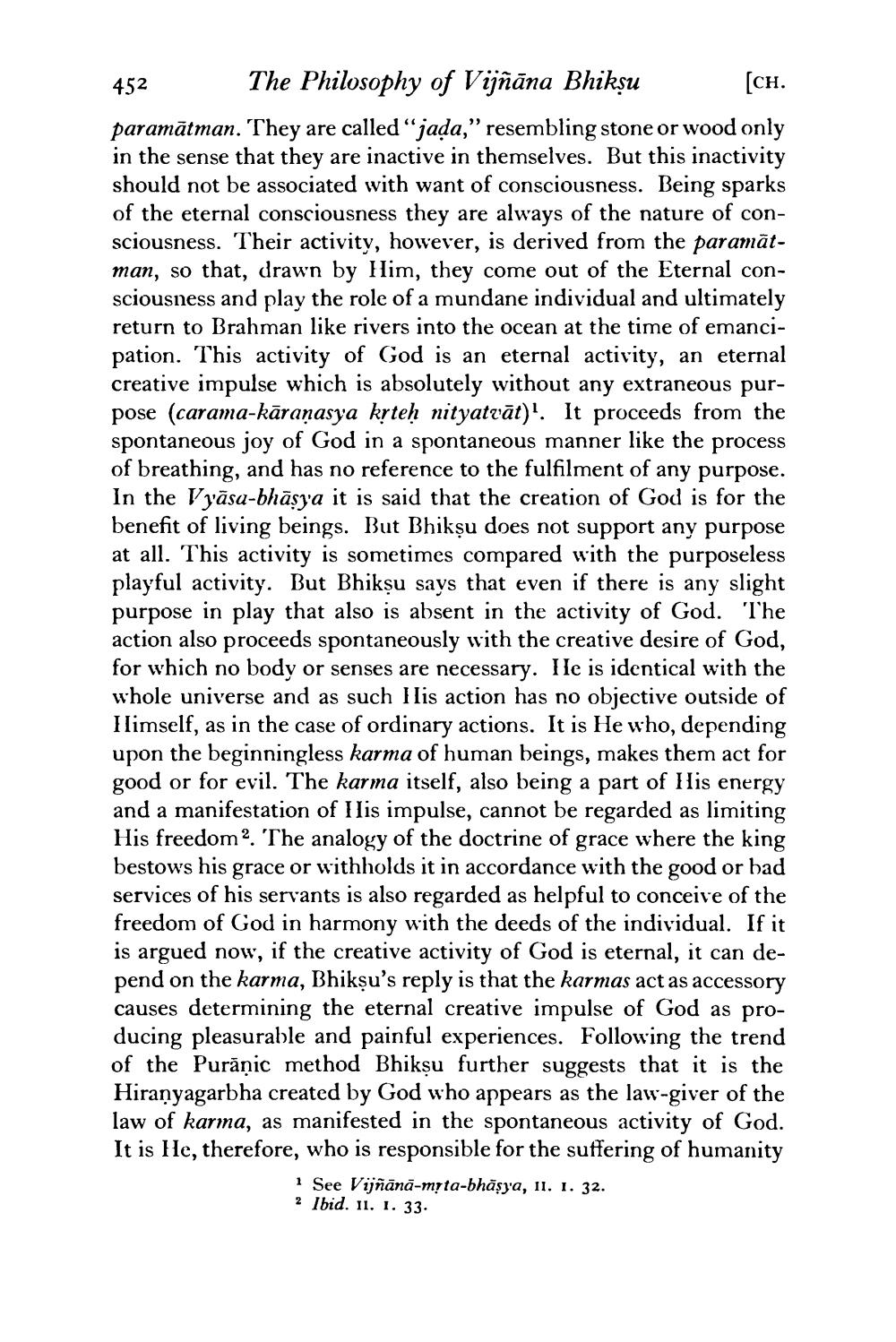________________
452 The Philosophy of Vijñāna Bhikṣu [CH. paramātman. They are called "jada,” resembling stone or wood only in the sense that they are inactive in themselves. But this inactivity should not be associated with want of consciousness. Being sparks of the eternal consciousness they are always of the nature of consciousness. Their activity, however, is derived from the paramātman, so that, drawn by Him, they come out of the Eternal consciousness and play the role of a mundane individual and ultimately return to Brahman like rivers into the ocean at the time of emancipation. This activity of God is an eternal activity, an eternal creative impulse which is absolutely without any extraneous purpose (carama-kāraṇasya krteh nityatvāt)'. It proceeds from the spontaneous joy of God in a spontaneous manner like the process of breathing, and has no reference to the fulfilment of any purpose. In the Vyāsu-bhāşya it is said that the creation of God is for the benefit of living beings. But Bhikṣu does not support any purpose at all. This activity is sometimes compared with the purposeless playful activity. But Bhikṣu says that even if there is any slight purpose in play that also is absent in the activity of God. The action also proceeds spontaneously with the creative desire of God, for which no body or senses are necessary. Ile is identical with the whole universe and as such I lis action has no objective outside of Ilimself, as in the case of ordinary actions. It is He who, depending upon the beginningless karma of human beings, makes them act for good or for evil. The karma itself, also being a part of His energy and a manifestation of Ilis impulse, cannot be regarded as limiting His freedom. The analogy of the doctrine of grace where the king bestows his grace or withholds it in accordance with the good or bad services of his servants is also regarded as helpful to conceive of the freedom of God in harmony with the deeds of the individual. If it is argued now, if the creative activity of God is eternal, it can depend on the karma, Bhiksu's reply is that the karmas act as accessory causes determining the eternal creative impulse of God as producing pleasurable and painful experiences. Following the trend of the Purāņic method Bhikṣu further suggests that it is the Hiranyagarbha created by God who appears as the law-giver of the law of karma, as manifested in the spontaneous activity of God. It is He, therefore, who is responsible for the suffering of humanity
1 See Vijñānā-mrta-bhāsya, II. 1. 32. 2 Ibid. 11. I. 33.




